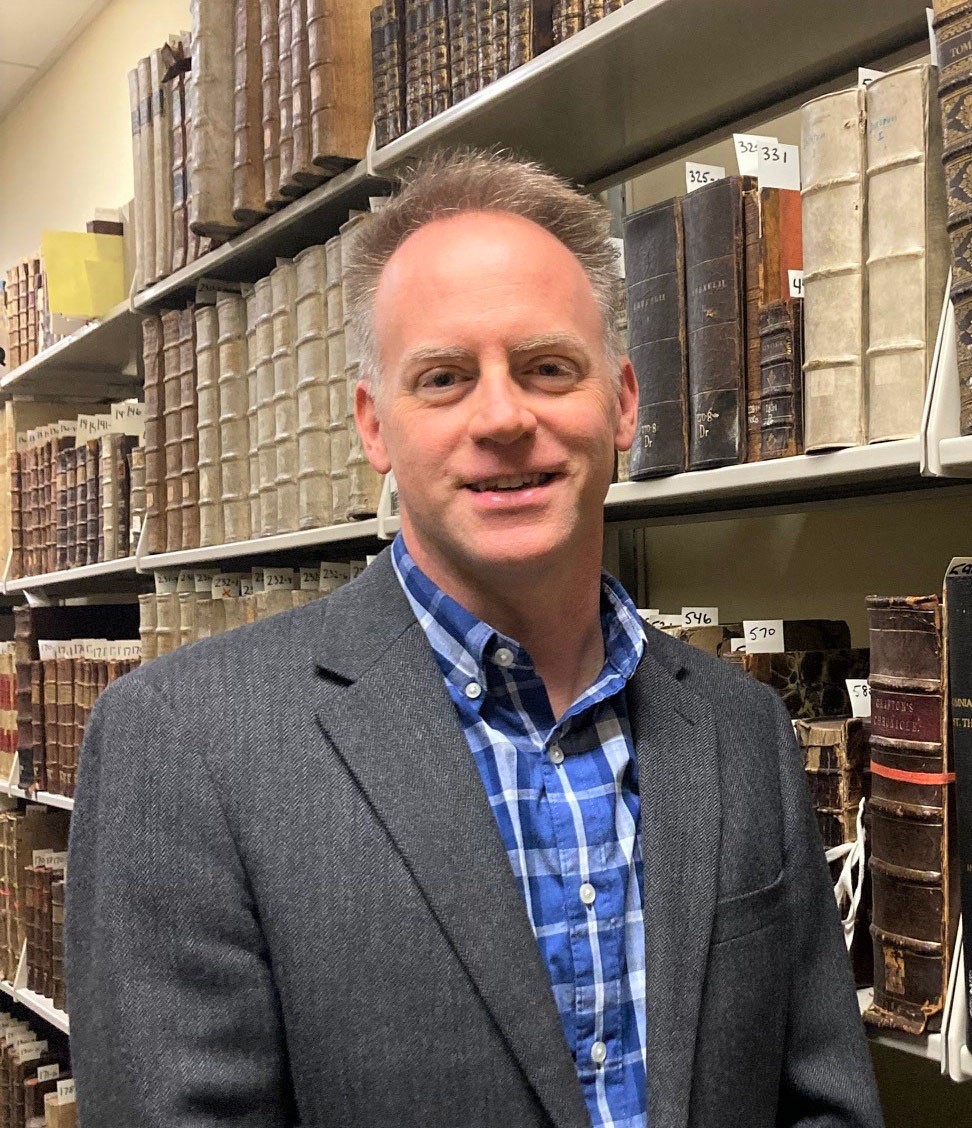Philip M. Hamer–Elizabeth Hamer Kegan Award: Dr. William Fliss
 Dr. William Fliss, curator of the J. R. R. Tolkien manuscript collection at Marquette University in Milwaukee, Wisconsin, is the 2023 recipient of the Philip M. Hamer–Elizabeth Hamer Kegan Award given by the Society of American Archivists (SAA). This award recognizes an individual, institution, or organization that has increased public awareness of archives documents.
Dr. William Fliss, curator of the J. R. R. Tolkien manuscript collection at Marquette University in Milwaukee, Wisconsin, is the 2023 recipient of the Philip M. Hamer–Elizabeth Hamer Kegan Award given by the Society of American Archivists (SAA). This award recognizes an individual, institution, or organization that has increased public awareness of archives documents.
Fliss is being honored for his significant work in improving access to and awareness of the J. R. R. Tolkien manuscript collection housed in Marquette’s Special Collections and University Archives. The collection, which was established in the 1950s and added to in the 1980s, has been very challenging to use for decades, requiring scholars to travel to the institution with limited access to original documents. Beginning in 2013, Fliss digitized the collection and reprocessed the digital surrogates, mapping out how the component pieces fit together. He envisioned and implemented the AnduinTM system, which allows onsite researchers to digitally view and sort the collection in multifaceted ways while maintaining decades of scholarly citations. In collaboration with the Haggerty Museum of Art and the Bodleian Libraries at the University of Oxford, Fliss curated the exhibition, J. R. R. Tolkien: The Art of the Manuscript, in 2022. The exhibition appeared at the Haggerty Museum, received more than 12,000 visitors, and included fifty Tolkien manuscripts never exhibited before as well as twenty-eight educational programs. With so many attendees, Fliss used the opportunity to record 302 submissions to the J. R. R. Tolkien Fandom Oral History Collection, which highlights contemporary views of the works of J. R. R. Tolkien. His work with the exhibition also sparked interest in the collection among younger generations as it brought new educational opportunities to campus classes and local K–12 programs.
One supporter praised Fliss’s work as exemplary because of his “impressive and persistent commitment to understand and organize the material, all conducted with careful and responsible concern with its long-term preservation.” Another supporter described Fliss as a visionary archivist who “revitalized a collection that, in many respects, needs no introduction.”